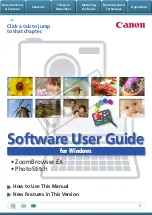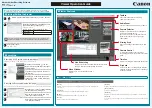
The New Menu
EPICenter Reference Guide
291
Composite Links
For composite links, the information panel displays the following information:
In addition, for each link endpoint, the following information is displayed:
The New Menu
The Default map contains all the network devices known to EPICenter, arranged based on EPICenter’s
internal algorithms (see the discussion
on page 293
in the section
“Displaying a Network Topology
View”
). However, it is often convenient to create views based on other criteria, such as physical
location, departmental organization, and so on. The Topology Viewer lets you create additional views
that organize your network elements in any way you wish.
New View
You can create a new view (and its Root Map) by selecting
New View
from the
New
menu.
A Create New View dialog box opens, as shown in
Figure 135
.
total errors
The total errors, if RMON is enabled on the device and if RMON statistics are enabled
for this map. This is updated regularly, typically every 30 seconds.
VLANs/Ports/Tag table
Displays information about the VLANs configured on the endpoint port
status
The overall status of the composite link—up, down, partially up, or unknown. Partially
up indicates that some links in the composite are up, some are down.
link count
The number of individual links in the composite link
links status
The number of links up, partially up, down and unknown
endpoint 1 and endpoint 2
The name of each endpoint node
endpoint 1 device and
endpoint 2 device
The device type or each endpoint node
endpoint table
A table showing the endpoint ports (or slot and port) for each individual link in the
composite link, along with the link status and whether the link is load shared. You may
need to move the right side boundary of the panel to see the last two columns.
Summary of Contents for EPICenter 6.0
Page 14: ...EPICenter Reference Guide 14 ...
Page 18: ...Preface EPICenter Reference Guide 18 ...
Page 19: ...1 EPICenter Basic Features ...
Page 20: ......
Page 24: ...EPICenter Overview EPICenter Reference Guide 24 ...
Page 44: ...Getting Started with EPICenter EPICenter Reference Guide 44 ...
Page 100: ...The Inventory Manager EPICenter Reference Guide 100 ...
Page 140: ...The EPICenter Alarm System EPICenter Reference Guide 140 ...
Page 172: ...Configuration Manager EPICenter Reference Guide 172 ...
Page 196: ...The Firmware Manager EPICenter Reference Guide 196 ...
Page 220: ...The Interactive Telnet Feature EPICenter Reference Guide 220 ...
Page 250: ...The Grouping Manager EPICenter Reference Guide 250 ...
Page 276: ...Real Time Statistics EPICenter Reference Guide 276 ...
Page 342: ...Using the VLAN Manager EPICenter Reference Guide 342 ...
Page 348: ...The ESRP Monitor EPICenter Reference Guide 348 ...
Page 446: ...EPICenter Reports EPICenter Reference Guide 446 ...
Page 447: ...2 Advanced Upgrade Features ...
Page 448: ......
Page 480: ...EAPS Protocol Monitoring and Verification EPICenter Reference Guide 480 ...
Page 508: ...Using the Policy Manager EPICenter Reference Guide 508 ...
Page 525: ...3 Appendices ...
Page 526: ......
Page 542: ...EPICenter Backup EPICenter Reference Guide 542 ...
Page 564: ...Voice over IP Manager EPICenter Reference Guide 564 ...
Page 580: ...EPICenter Reference Guide 580 ...
















































